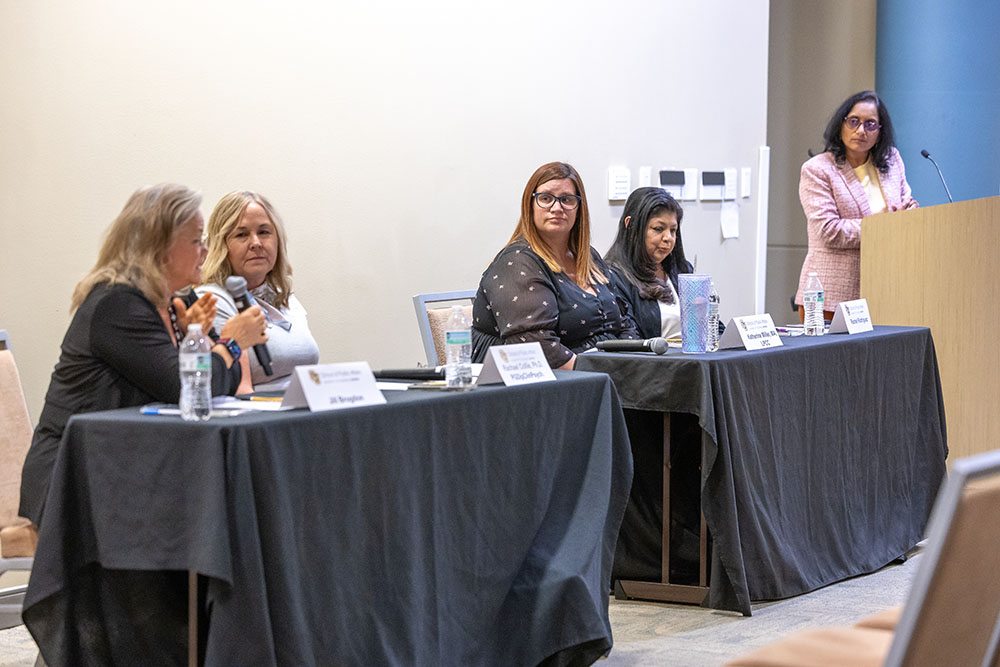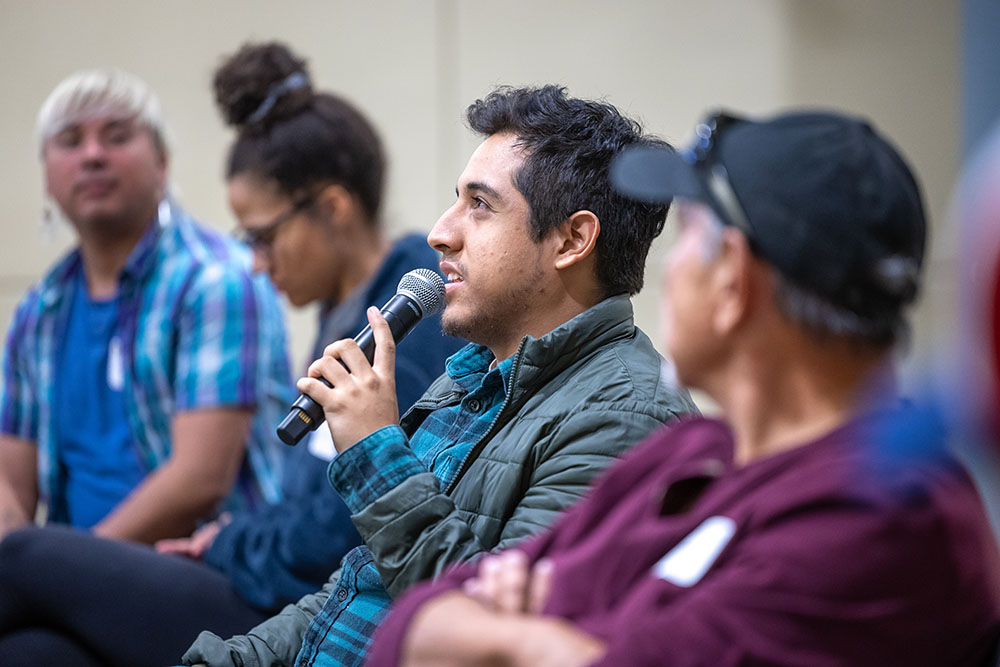Raising Awareness, Building Support: Highlights from the 'Thrive' Panel on Intimate Partner Violence
Debrief from Thrive: Thrive: Understanding Intimate Partner Violence—Awareness, Prevention, and Support on October 22, 2024
Dr. Sheila Huss | School of Public Affairs Oct 24, 2024
The Center for Community Safety and Resilience (CCSR) and the School of Public Affairs presented a panel discussion on intimate partner violence on October 22, 2024. The panel addressed many facets of intimate partner violence, including language and definitions related to the term, contributing factors, effective interventions, and ways that people and communities can be involved to prevent the problem and support survivors. The event took place in October because October is Domestic Violence Awareness month, a designation begun by Congress in 1989.

Panelists included Jill Brogden, Human Trafficking Program Coordinator for the Colorado Department of Public Safety, Division of Criminal Justice, Office for Victims Programs; Rachael Collie, Staff Researcher, Office of Domestic Violence and Sex Offender Management, Division of Criminal Justice, Colorado Department of Public Safety; Katherine Miller, Director, the Phoenix Center at Auraria; and Rachel Rodriguez, Associate Director, Rose Andom Center. Anu Anupindi, a Master of Criminal Justice student in the School of Public Affairs with a focus on Gender-Based Violence, moderated the panel. Dr. Deserai Anderson Crow and Dr. Sheila M. Huss co-direct the Center for Community Safety and Resilience, and Dee Dee Flynn serves as the School of Public Affairs’ Public Relations and Events Senior Professional.
Intimate partner violence assumes many forms. Its consequences are devastating, costly, and often lifelong. This Thrive discussion illuminated the complexities around the problem, yet panelists also identified specific risk factors and ways to support survivors. Panelists highlighted the resilience of individuals who have lived experience and the meaningful nature of their work in this area.

Community members who participated in the conversation asked the expert panelists about the prevalence and meaning of perpetrators of intimate partner violence having also been victims and about male intimate partner violence victimization. Panelists addressed the overlap between offending and victimization, pointing out the importance of prior abuse or victimization as an explanation but not an excuse for committing intimate partner violence. There also was a discussion about male victims of intimate partner violence—the possible difficulty men have in identifying their victimization, challenges men face in reporting victimization, and the lack of resources for male victims until recently. Many people during and after the panel talked about the value of being involved, particularly through volunteering.
The National Domestic Violence Hotline is 1-800-799-SAFE (7233); it is free and confidential.
The Phoenix Center provides free support to students, faculty, and staff who have been impacted by interpersonal violence.
The 24/7 free and confidential crisis hotline is (303) 556-CALL (2255)
For an appointment, outreach, or information, contact (303) 315-7250
For more information about the Thrive Series events and other upcoming events, please visit the University of Colorado Denver School of Public Affairs website. You can also view the recording from the “Community Resilience in the Face of Growing Challenges” panel online at https://youtu.be/kVKuB188NdY
Images taken by Paul Wedlake, Senior Photographer and Videographer at the University of Colorado Denver
The Center for Community Safety and Resilience (CCSR) at the University of Colorado Denver School of Public Affairs envisions thriving individuals and families in safe and supportive communities. CCSR advances that vision through research-based evidence and practice toward individual and community safety, resilience, and justice.
- CCSR is dedicated to effective programs, practitioner and community education, and public policy advocacy and analysis.
- CCSR broadens and deepens work on interpersonal violence to advance social justice, increase public safety, eliminate individual and societal violence, and strengthen community resilience. We:
- Bring diverse, intersectional, and intersectoral issues front, center, and woven throughout.
- Focus on social determinants of health and community determinants of violence.
- Examine individual and community resiliency to violence, trauma, and crisis.
Thrive Series: Community Conversations in Justice and Resilience: What Does it Mean to Thrive?
The Center for Community Safety and Resilience (CCSR) at the School of Public Affairs at CU Denver is launching a new series called the Thrive Series. These conversations will be in collaboration with academic and lived experience experts and will focus on issues related to criminal and social justice, public safety, individual and societal violence, and community resilience. This series will utilize a variety of formats, including but not limited to panel discussions, debates, and guest speakers. Each event will end with public discourse, welcoming learners of all levels to engage and ultimately aiming to cultivate a healthier and more prosperous community. These events will be held in person to allow for interactive discussion. Requests for virtual attendance for specific occurrences of the series can be made to spa.events@ucdenver